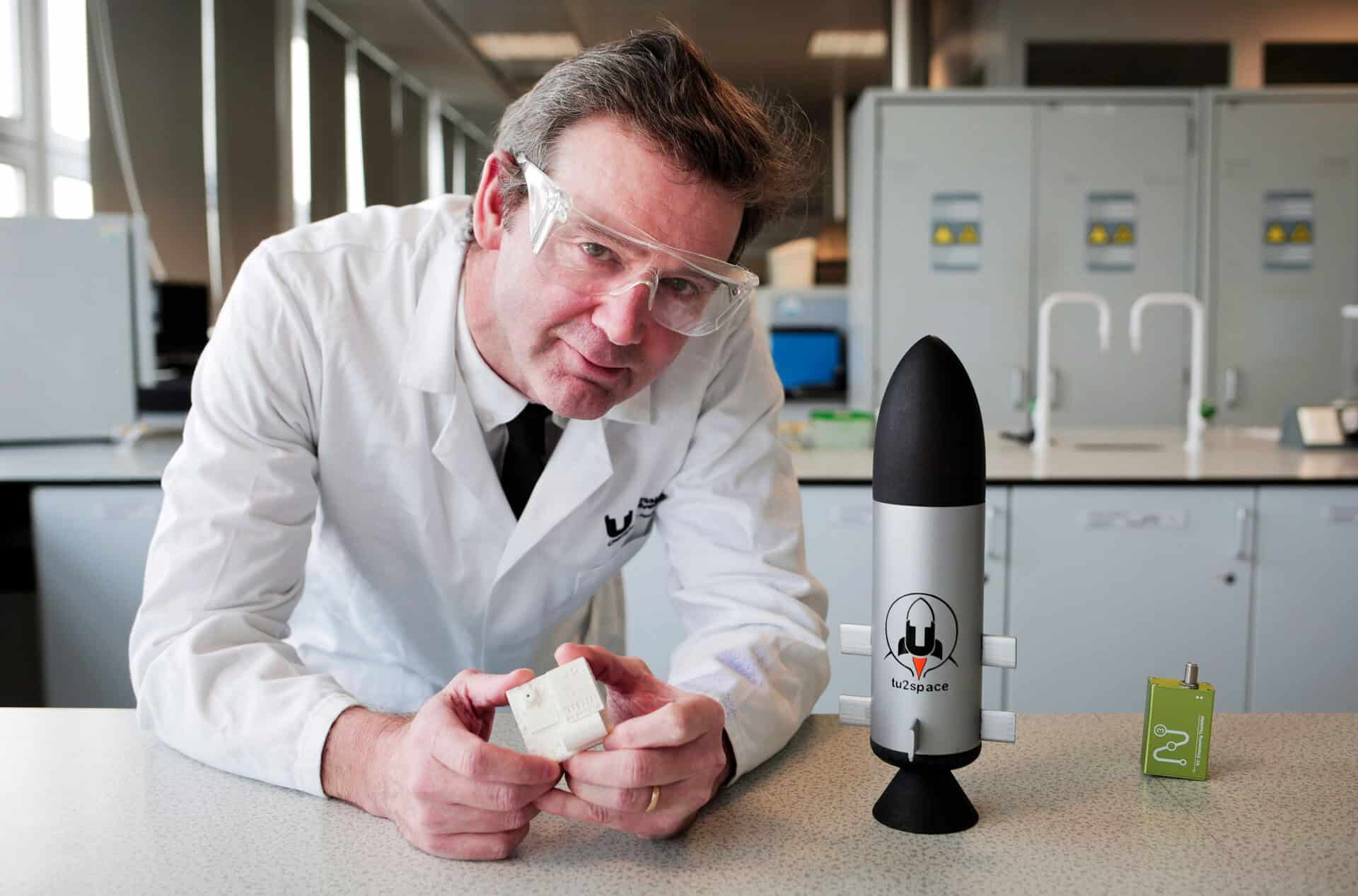
Who can get involved in space exploration? How about a student from Teesside? Or a woodturner from Hartlepool? All of these people have been part of the projects co-ordinated by Shaun Whitehead, a creative engineer, artist, adventurer and founder of Scoutek Ltd.
Shaun was project engineer for the EPIS MOS cameras on ESA’s XMM Newton, the largest-ever European scientific satellite. He was also chief engineer for the payload adjustable workbench on the British Beagle 2 Mars Lander and was a consultant on NASA’s SWIFT telescope.
His company has developed ThumbSats, which are tiny satellites no larger than a human thumb, as well as the Steel River One project, a bid to be the first independently-verified student rocket to reach the official boundary of space (100km).

The space industry is massive.
It’s everything from astronauts to people in a tiny company making electronics. To give you an idea, the Apollo programme included 400,000 different people, in roles from sewing gloves to producing simulators.
Anyone about today is so lucky to be alive at a time when there are so many fascinating opportunities in space.
I’m inspired to help future generations because I remember how inspired I was by people taking me seriously.
When I was younger, I designed my own rockets. NASA wasn’t putting ten-year-old British kids into space, so I figured if anyone was going to do it, I’d have to do it myself. Now that I look back, the rocket I designed wasn’t brilliant, but there were people in important companies who responded when I wrote letters to them, and I’ve never forgotten that.
I’ve always wanted to learn about stuff. There’s nothing really stopping you, no matter how old you are. You have to enjoy your life and not worry about landing on exactly the right subject at school. It’s more important to be prepared to give things a go.
I grew up on a farm, so I could just potter around and experiment. We didn’t have to buy stuff, if we didn’t have something specific we just made it ourselves. If I wanted a car and there was a lawnmower with a working engine, we’d just adapt that.
When I got older, I saw a job advertised that involved building a space telescope, and I thought that was a fantastic opportunity. And then every time I’d wind down one thing, something else exciting came along.
I was fortunate enough to start my own little business, and I’ve done consultancy for many major space agencies. I’ve worked on projects such as ThumbSat, a project that continues, and we’re currently working with North East company AmbaSat to put their experiments into space.
But one of the most important projects I’ve done has been Steel River One, a project to put a tiny rocket into space. It started at Teesside University and has provided a range of opportunities for students, from making rocket propellers and flying balloon missions to doing tests and simulations.
They’ve learned a lot. Some have gone on to have great careers, not just in space, but also in engineering and other fields. We’ve reached out to local businesses and brought in craftsmen to help us. For example, we worked with Dennis Wake – a woodturner from Hartlepool – to build wooden rockets that wouldn’t pollute the North Sea. It’s been a hugely fulfilling project, and we’ve benefitted from a lot of support from the Reece Foundation.
I’m really enthusiastic about giving young people chances to get involved. I always say that a lot of people are scared to fail because they’re not used to it. But when you’re experimenting, you get very used to that.
I just love to discover things. Engineering can take me to amazing places, and on amazing adventures.
If you want to do anything, learn how to learn, and you’ll get somewhere.
The launch of Steel River One is currently on hold. But in the meantime, Shaun is offering free mentorship and expertise to any schools or colleges with an interest in space. If anyone is interested, they should contact him at shaun@creationeer.co.uk
